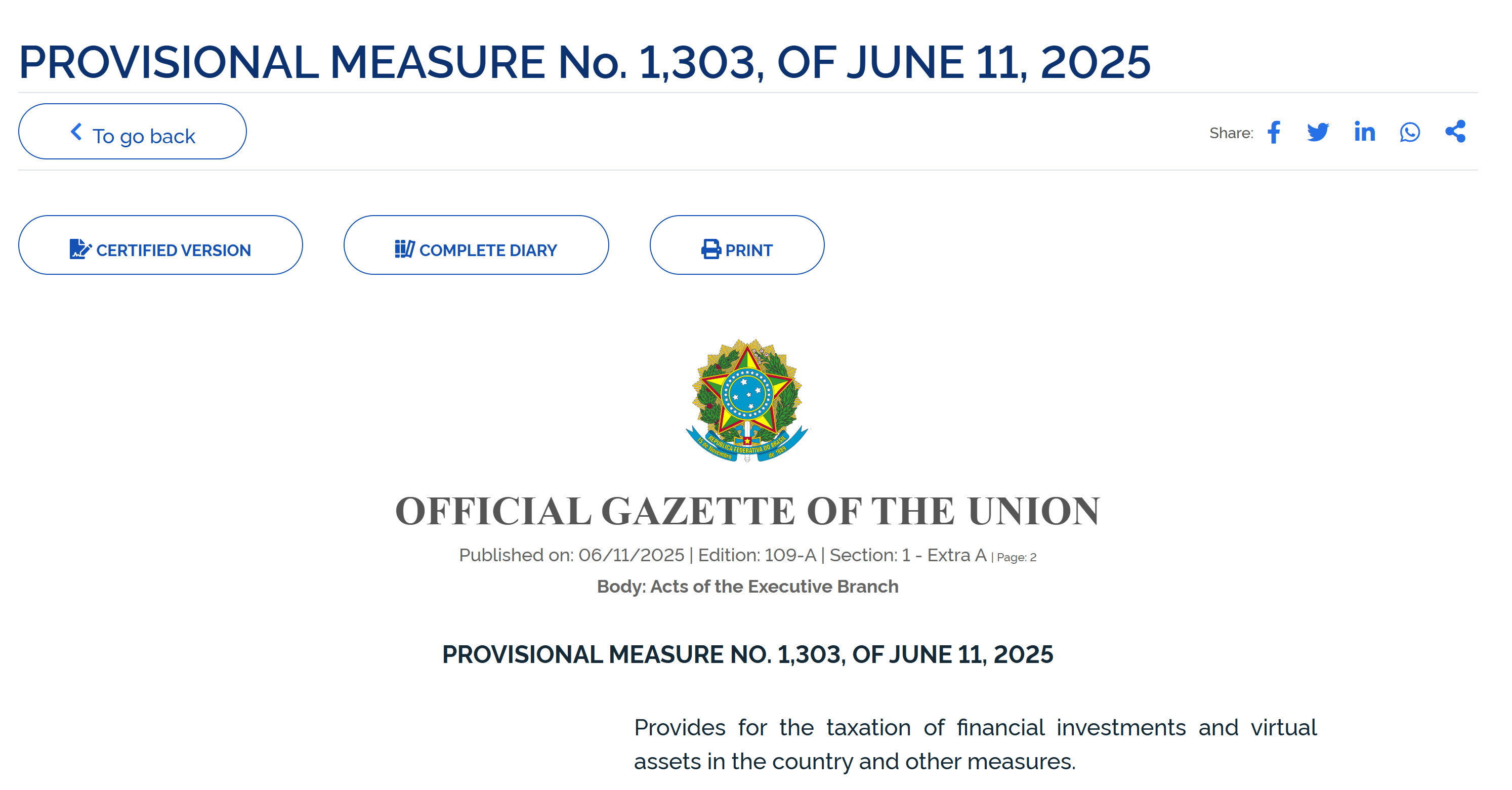Flat Tax Introduced for All Brazilian Crypto Investors
In a major policy shift, Brazil’s Ministry of Finance has enacted Provisional Measure 1303, slapping a flat 17.5% tax rate on all monthly profits from crypto investments. This move ends the previous exemption for smallholders, who were allowed to sell up to 35,000 BRL (~$6,300) worth of digital assets per month tax-free.
Now, regardless of the transaction amount, every investor must pay the same 17.5% rate. Previously, profits were taxed progressively between 15% and 22.5%, depending on volume. This flattening of the tax curve benefits whales but burdens retail investors, many of whom are expressing concern and confusion.

Source: Brazil Government
Broader Financial Products Also Targeted
Crypto isn’t alone. The government has also introduced a 5% tax on fixed-income securities that were previously exempt and raised betting taxes from 12% to 18%. The goal? Raise revenue across the board to support fiscal agendas.
To slightly soften the blow, the Ministry of Finance is now switching to quarterly tax assessments, allowing investors to offset losses from the past five quarters—a change from the current monthly structure.
However, this hasn’t prevented a strong wave of criticism from within the crypto community and beyond.
Crypto Firms and Associations Push Back
Brazil’s largest crypto exchange, Mercado Bitcoin, publicly criticized the government’s actions. Quoted statement from the exchange:
The platform warns the tax hike could make the Brazilian market less competitive, potentially pushing users to offshore platforms or non-compliant brokers, weakening local oversight and exposing users to risk.
Industry advocacy groups like the Brazilian Association of Cryptoeconomics and the Brazilian Association of Fintechs echoed these concerns, saying the move undermines regulatory confidence and might drive investors away from the domestic market.
Adding to the concern, crypto bank Bitybank pointed out that this measure clashes with recent consultative efforts by the Brazilian Central Bank, revealing a fractured and inconsistent policy landscape.
Confusion Among Retail Investors and Legal Pushback Begins
Many market participants are already struggling to understand how the tax will be calculated. Andre Franco, CEO of Boost Research, stated that most investors “will be confused” by the tax changes, particularly smallholders who may lack the resources to comply effectively.
Now, a political fight is brewing. Deputy Gustavo Gayer, a vocal pro-crypto lawmaker, has filed a legislative decree to annul Provisional Measure 1303, claiming it exceeds the executive’s authority and creates legal uncertainty.
Meanwhile, the Chamber of Deputies has signaled that Provisional Measure 1303 will not move forward unless the government demonstrates a stronger commitment to fiscal discipline, including clear efforts to reduce expenses.
Brazil’s Crypto Future Now Hangs in the Balance
With the country's crypto sector still waiting for a full regulatory framework, this tax crackdown is seen by many as premature and counterproductive. For now, Brazilian crypto investors are left navigating uncertainty, compliance risks, and possible capital flight—unless the Congress or courts step in to reverse the decision.


